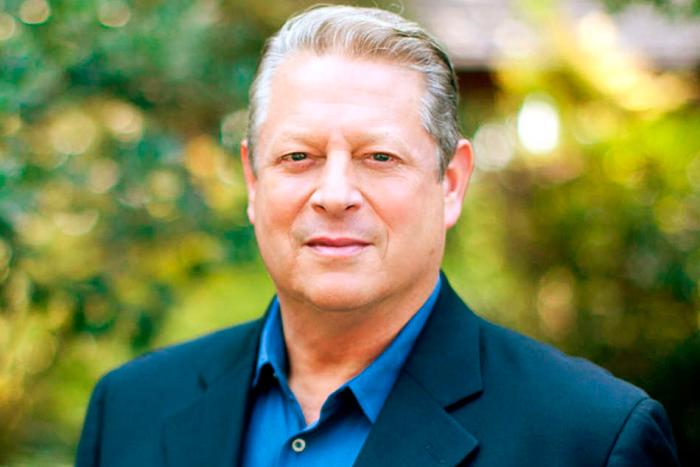Last Tuesday, we heard a thrilling description of how President Barack Obama might close the prison at Guantanamo Bay. He has stated his intention to do this for the past five years, and says he’ll proceed even if Congress continues to say no. I hope he acts on it. But, whether this “indefinite detention in an indefinite war with no enemy capable of surrendering” is brought to a speedy halt or not, the facility has been open for more than a decade, and it’s offshore for a reason. These prisoners have been treated in a way that would not be allowed in the United States. And whether we’ll ever know exactly what’s been done to them, and if anyone will ever be held accountable, depends almost entirely on whether any records are being kept, and, if kept, whether they are destroyed before anything can come to light.
This got me thinking about the Mau Mau war, a storehouse near Milton Keynes, email, and the future of what people in the industry call restorative justice.
There was news last week that government lawyers in the UK have entered compensation negotiations with survivors of the Mau Mau war (1952-1960) who claim horrific treatment at colonial hands. Ndiku Mutua, Paulo Mzili, Wambugu Nyingi, Jane Muthoni Mara, and Susan Ngondi all allege horrible treatment, including two claims of castration, which was a common British practice during the uprising against their colonial government of the time. The judge’s decision was based on the discovery of a couple of hundred boxes of documents uncovered at Hanslope Park, a garrison of British intelligence. The role these documents played in moving the case forward is complicated and legalistic—there was no smoking gun in them—but the simple fact is there were documents, stored in boxes for decades, and they contained enough combined information to do the trick.
We don’t know a lot about the role digital data will play in the projects of future historians and biographers—whither collected correspondences?—but one of the things we do know about such records, says Wendy Duff, a professor from the University of Toronto’s Faculty of Information, is that, “If you leave them in a box in a basement for 30 years, they’re probably not readable.” Duff specializes in the role archives play in our society, especially as they concern social justice. She has just come back from the UK, where she spoke to people working with the panel that’s been struggling to find out just what happened at Hillsborough Stadium in 1989 and why.
“Two people I interviewed last week, one of whom was on the panel, said that the most important thing to be done was the traditional transfer of records to the archives,” she says. “If we had a government with good electronic record keeping, and things were transferred, one could say the possibility of justice is still there. But the possibility of it being lost is much greater. Unless you have those adequate systems in place, you will lose those records.”
She tells me a story that’s well known in archivist circles about Ronald Reagan giving the orders for all electronic correspondence to be destroyed as he was leaving office. The National Security Archive, the American Library Association and the American Historical Association sued under the Freedom of Information Act to get access to it, and it was only because of a backup system that Reagan and others assumed would be recycled that messages between Oliver North, John Poindexter and others ever came to light. It’s safe to say that people in government have become more technologically savvy since then, and that they became even more so after someone gave a bunch of their secrets to Wikileaks.
Professor Caroline Elkins won a Pulitzer for her 2005 book, Imperial Reckoning, about the Mau Mau war, and was the one who found the closest thing to a smoking gun document—a memo written by the Kenyan governor at the time, with supporting documents from the British attorney general in Kenya that officially approved systematized violence in detention camps on the Mwea Plains—while trawling through some London archives in 1998. One of the effects of the metamorphosis of documentation she sees coming, and she sees it coming more quickly to the courts than anywhere else, is an evolution of what is actually treated as evidence.
“What do we speak of when we speak of evidence?” she asks, speaking from her home near Harvard, where she teaches history. “I think it’s going to put a lot more weight on oral testimony and on what people observe. You can erase computer files and incinerate documents, but you can’t erase memory. The fetishizing of written evidence has shifted.”
She’s optimistic about the future of large-scale cases against governments, like Mau Mau is, and Guantanamo may be.
“There’s always going to be a lot of things that people don’t erase because they don’t think it’s important,” she says, pointing out that she’s found documents the government ultimately shredded but that someone, at some point, made a copy of and put in some other file. These days, of course, anyone can email anything to a boyfriend, or put it on a storage device to impress their friends. Information proliferates in ways that Daniel Ellsberg, who spent days at a photocopier and risked discovery while hauling enormous boxes of paper, probably never dreamed of. “But someone like me comes along in 10, 15 years, going through evidence and can actually put the structure back together again. You can never get rid of everything.”
Perhaps not. But that may not be the most serious problem posed by the advent of digital documentation.
On the one hand, there is more of it than ever, which would seem to increase the likelihood that culprits, governmental and otherwise, will be caught. But ironically, the very ease of disclosure—thumb drives, a quick upload to an anonymous service like the one Julian Assange set up—can impose a chill that did not exist before. According to Duff, one of the likely outcomes of the Wikileaks scandal is that the sort of detailed diplomatic records that became such embarrassments will simply not be written anymore.
Very few people think of their actions as evil, and similarly few people like the idea of being caught by those who do. The more guilty parties who are caught because of their record-keeping—the Third Reich, Pol Pot, Richard Nixon, random diplomats—the more lessons are learned about how not to be.
Which brings us back around to Guantanamo. The whole world has been watching, inasmuch as they’ve been able to, ever since the prison opened. Stories have trickled out, hinting at the sort of behavior Americans and much of the rest of the hopeful world likes to think Americans don’t engage in. We still don’t know who’s guilty in there and who’s not, but it’s becoming increasingly moot, as many have already served the sort of sentences, pre-trial, that they might have been expected to serve if they’d actually been found guilty. But once it’s all over and the prisoners have been dispersed, it’s entirely possible, given the post-Assange chill, that there will simply be no records of anything that could be interpreted as wrongdoing. Those who claim to have been treated like those Kenyans who are hoping for some justice from the British government will not have any boxes, moldering somewhere in Virginia or Nevada, to pop up like a cavalry after all hope was lost. And the same goes for all those other so-called black sites, like the ones depicted in Zero Dark Thirty, where who knows what’s going on right now. And what about other regimes? Are we now more or less likely to know what went on and who did what in Bahrain in 2011?
For everyday street justice, London’s CCTV can provide good material, and sure, let a billion camera phones bloom. But for the sort of top-secret nastiness that governments get up to, where they can confiscate phones, and where we can assume they’re increasingly touchy about anyone putting anything down on any form of media, and where victims’ very sanity is put into question by the treatment they may or may not be facing—leaving them questionable witnesses at best if they survive—I’m not entirely sanguine.
It’s a shame Obama has not been able to do more. I remain a hopeful Obama supporter, and believe he wants to. It’s an issue presumably quite close to his heart, given the fact that his grandfather, the one who gave him his middle name, Hussein Onyango Obama, was himself tortured by the Brits as a Mau Mau insurgent. At least, Barack believes he was. But there are no documents to prove it, which has led some to make the case it never happened. It remains to be seen what kind of lesson President Obama is learning from this.






